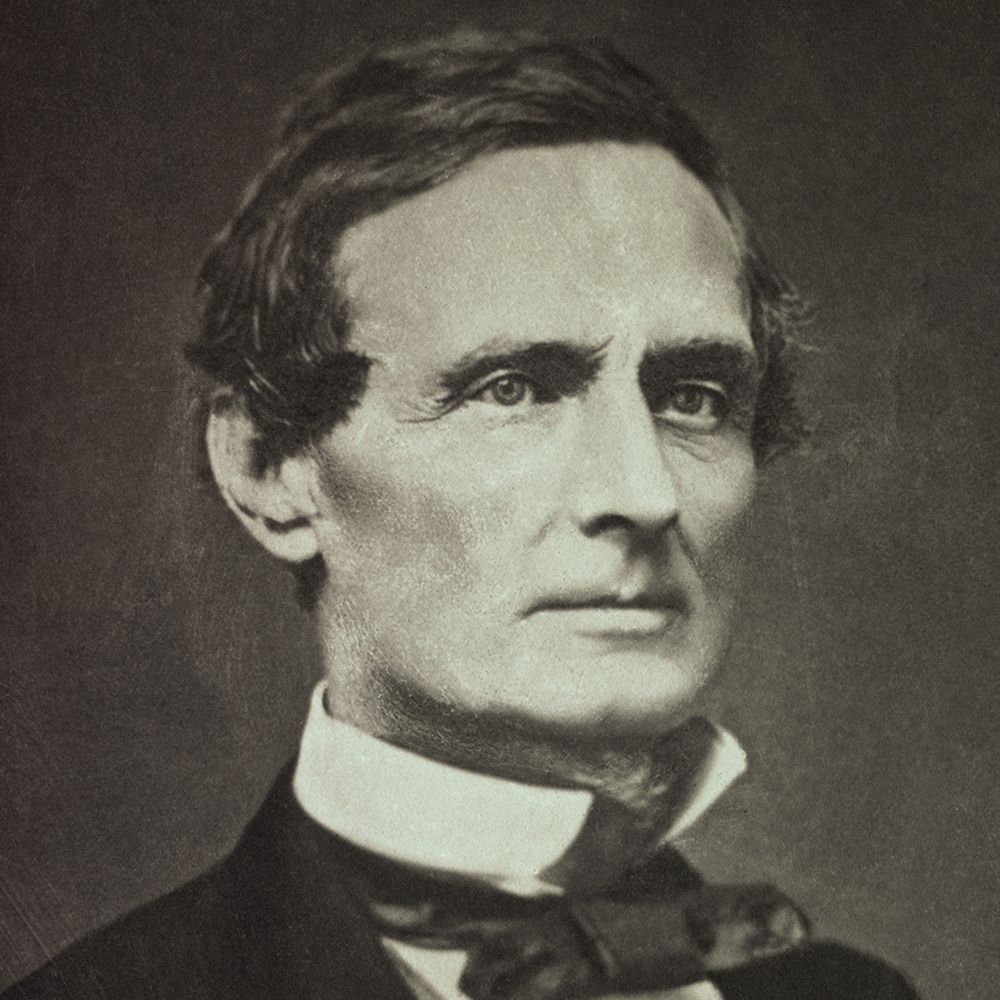
When we reflect on the tumultuous period of the American Civil War, one name frequently emerges as a focal point of discussion: **Jefferson Davis**. But who was this man beyond the historical title he held? In this article, we will embark on an in-depth exploration of Jefferson Davis’s life, examining his early years, his rise to prominence, and the significant role he played as the **president of the Confederate States of America**. We will also analyze his policies, leadership style, and the lasting impact he had on the course of American history. By delving into the complexities of his character and the context of his actions, we aim to provide a comprehensive understanding of Jefferson Davis and his place in the narrative of the Civil War. Join us as we uncover the multifaceted legacy of this controversial figure and the implications of his decisions during one of the most critical periods in American history.
Early Life: Roots and Education

Born into a Troubled World
Jefferson Davis entered the world on June 3, 1808, in the rural setting of Christian County, Kentucky. As the 10th child in a large family, he was born into a household that was both bustling and vibrant, thanks to his father, Samuel Emory Davis, who was a planter with deep roots in the local community. Growing up among so many siblings must have created an atmosphere filled with energy, competition, and camaraderie, shaping his early experiences and interactions.
Education: A Path to Leadership
At the tender age of 7 years old, Davis was sent away to a Dominican boys’ school in Kentucky, marking the beginning of his formal education. By the time he reached 13, he had advanced to Transylvania College in Lexington, where his insatiable thirst for knowledge became increasingly apparent. His academic journey continued as he enrolled in the prestigious United States Military Academy at West Point, where he successfully graduated in 1828. This rigorous education laid the groundwork for his future leadership roles.
Friendships that Shaped a General
While at West Point, Davis forged significant friendships with several individuals who would later become prominent figures in the Confederate Army, including Robert E. Lee and Joseph E. Johnston. These relationships not only enriched his life during his formative years but also played crucial roles in the unfolding events of the Civil War. The bonds he created during this time would influence military strategies and decisions in the years to come, highlighting the importance of camaraderie in shaping leadership in times of conflict.
Military Career: From Soldier to Statesman

Early Military Service
Jefferson Davis began his military career as a lieutenant in the Wisconsin Territory, where he gained valuable experience that would shape his future endeavors. He participated in the Black Hawk War, serving under the command of Colonel Zachary Taylor. This conflict not only tested his resolve and leadership skills but also provided him with insights into military strategy and the complexities of command. The lessons he learned during this time would prove instrumental in his later roles, as he navigated the challenges of leadership in both military and political arenas.
A Personal Tragedy
In a poignant turn of events, Davis married Sarah Knox Taylor, the beloved daughter of his commanding officer, which seemed to promise a bright future. However, just three months into their marriage, tragedy struck when Sarah succumbed to malarial fever. This devastating loss left a profound impact on Davis, plunging him into a deep state of grief. Unable to cope with the heartache, he withdrew from society and retreated into seclusion for several years. During this time, he grappled with his sorrow and sought solace, reflecting on the fleeting nature of life and love.
Political Ascent: From Congress to the Confederacy

Entering Politics
In the year 1845, Jefferson Davis embarked on a significant journey in his political career when he was elected to the U.S. House of Representatives. This pivotal moment marked the beginning of his influence in American politics, and he quickly distinguished himself among his peers. His ability to articulate the concerns of his constituents and his commitment to public service garnered attention, setting the stage for a promising future in governance. As he navigated the complexities of political life, Davis’s reputation as a dedicated and capable leader began to take shape, laying the groundwork for his subsequent endeavors.
Mexican-American War Hero
During the tumultuous period of the Mexican-American War, Jefferson Davis rose to prominence as a military leader, commanding the First Mississippi Volunteers. His leadership was put to the test during the fierce Battle of Buena Vista, where his strategic acumen and bravery in the face of adversity earned him national recognition and admiration. The successful defense of his position not only solidified his status as a war hero in the eyes of the American public but also garnered respect from international observers. Davis’s tactical skills and unwavering determination during this critical conflict played a significant role in shaping his legacy as a prominent figure in both military and political spheres.
The Road to the Confederacy

Becoming Secretary of War
In 1853, President Franklin Pierce appointed Davis as Secretary of War. He expanded the army and improved coastal defenses, showcasing his commitment to national security.
The 1860 Election: A Divided Nation
As tensions rose between North and South, Davis supported John C. Breckinridge in the 1860 presidential election, advocating for the protection of slave holdings. His views reflected the growing divide in the nation.
Presidency of the Confederacy

Election as President
On February 18, 1861, Davis was elected as the provisional president of the Confederacy. Imagine the weight of that responsibility! He was tasked with leading a new nation amidst a brewing war.
The Civil War Begins
After the attack on Fort Sumter, Davis ordered the bombardment, marking the official start of the American Civil War. His leadership was put to the test from day one.
Challenges Faced
Davis faced numerous challenges, including a lack of resources, internal political strife, and a divided Congress. Yet, he remained determined to lead the South in its fight for independence.
Military Leadership: Decisions and Consequences

Choosing Robert E. Lee
One of Davis’s most significant decisions was appointing Robert E. Lee as commander of the Army of Northern Virginia. This choice would shape the course of the war.
Strategic Mistakes
While Davis made some wise military decisions, he also faced criticism for overemphasizing the defense of Richmond at the expense of other strategic locations like Vicksburg.
End of the Confederacy and Aftermath

Fall of the Confederacy
As the war dragged on and the South faced increasing hardships, Davis’s leadership was challenged. The Confederacy ultimately fell in 1865, leading to his capture.
Imprisonment and Legacy
Davis was imprisoned for two years and indicted for treason but was never tried. His legacy remains controversial, with some viewing him as a symbol of Southern pride and others as a defender of slavery.

Jefferson Davis was a complex figure whose life and leadership during the Civil War continue to spark debate. Whether you see him as a hero or a villain, his impact on American history is undeniable. What do you think? Was he a product of his time, or did he shape the future of the South?
Table: Key Events in Jefferson Davis’s Life

| Year | Event |
|---|---|
| 1808 | Born in Christian County, Kentucky |
| 1828 | Graduated from West Point |
| 1845 | Elected to the U.S. House of Representatives |
| 1861 | Elected provisional president of the Confederacy |
| 1865 | Confederacy falls; captured by Union forces |
| 1889 | Died in New Orleans, Louisiana |

